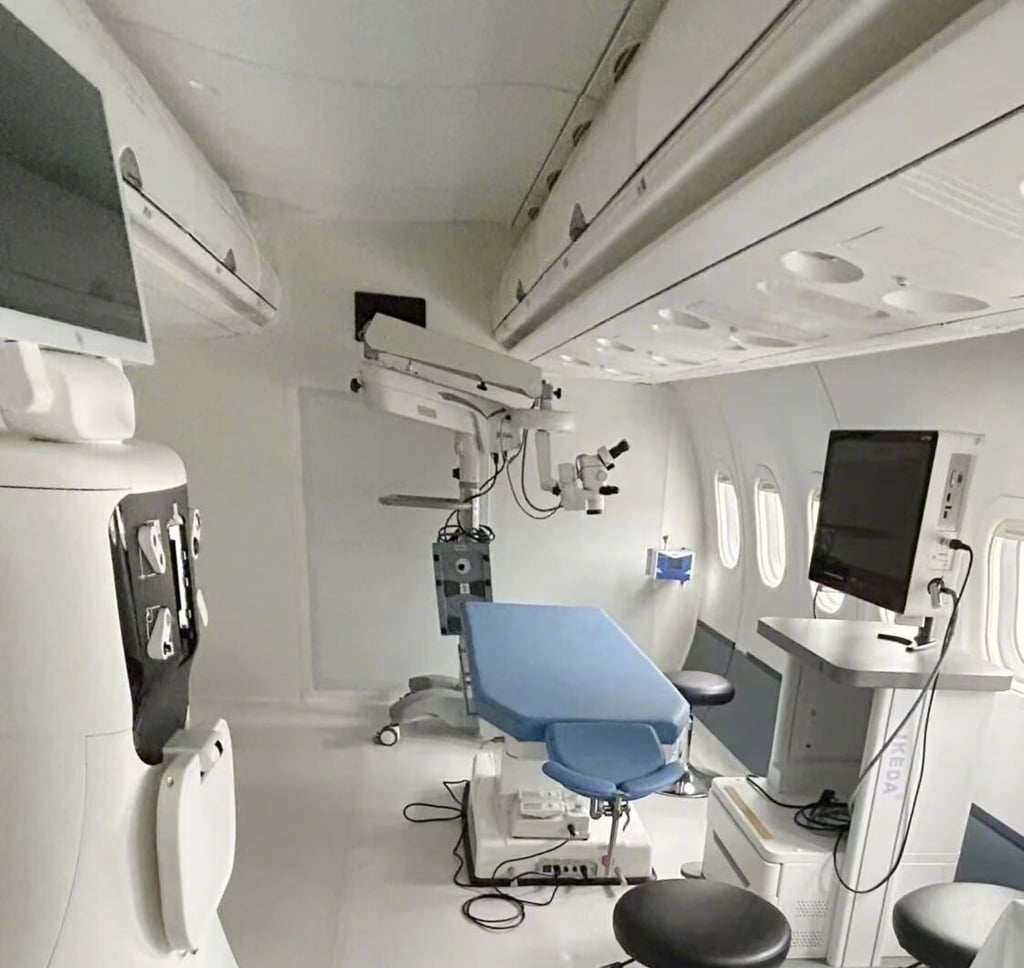Advertisement
The upgrade advances the airborne hospital concept from in-flight diagnosis to genuine surgical capability, broadening the jet’s commercial applications, according to official media.
The cabin is a joint project between Comac and Fudan University’s Eye and ENT Hospital in Shanghai, the Science and Technology Daily reported. Third-party testing confirmed it meets China’s highest cleanliness standards for hospital operating rooms, allowing complex onboard procedures in fields such as ophthalmology and otolaryngology.
The “flying hospital” debuted during a mission to Shihezi in the Xinjiang Uygur autonomous region in September, where it mainly supported mobile diagnosis and 5G-enabled remote consultations.
Equipped with domestically produced medical equipment, the cabin features a bolt-free, quick-assembly design that lets crews install it inside the aircraft without altering the plane’s structure. A variable-speed laminar airflow module achieves surgical-grade air cleanliness despite height constraints, overcoming a long-standing technical bottleneck.
Advertisement
It could help relieve shortages of specialist care in remote areas. Nearly 50 patients in Xinjiang received examinations and remote consultations with Shanghai-based medical professionals during the maiden flight. The modified aircraft is also expected to support in-demand procedures such as cataract surgery, according to the report published on Friday.



